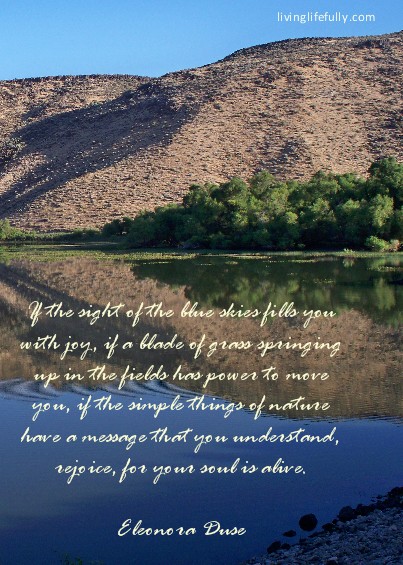|
Today's
quotation:

We
are incredibly heedless in
the formation of our beliefs,
but find ourselves with an illicit
passion for them when
anyone proposes to rob us
of their companionship. It is obviously not the ideas
themselves that are dear
to us, but our self-esteem
that is threatened.

James
Harvey
|
|
Today's
Meditation:
These days, one of my first questions to myself
whenever I start to feel judgmental is whether or not what
I'm feeling is the result of knowledge or of a
belief. I've been on this planet for quite a long
time, and I've formed quite a lot of beliefs in that
time. One of the seeming common traits of human
beings, though, is that we tend to defend our beliefs come
hell or high water, because we think that they help to
define who we are. The truth is, though, that
beliefs are simply beliefs, and many of them are rather
dangerous because they help to form our lives in negative
ways.
If I believe in Santa Claus, that's a rather harmless
belief. If I believe, though, that other people
should share my belief because I know I'm right, then I
become a threat to other people's peace and I set myself
up for lots of frustration. If I believe that I'm
not lovable (a typical trait of an Adult Child of an
Alcoholic), or that I'm doomed to live my life in poverty,
then those beliefs help to shape my behaviors, and thus my
life. And I can't depend upon other people to help
to change my beliefs, because the ways I act are going to
help keep other people away.
So I regularly ask myself if what I feel is a belief or
knowledge. Do I assign homework because research
shows that it helps my students, or because I believe it's
for the best? Do I try to convince someone else of
something because I know for sure that it's true, or
because I believe that it's true? And I have to be
careful, because when I try to figure out if what I think
is a belief or knowledge, it's very easy for me to seek
out only evidence that supports my belief, and ignore or
reject any evidence that may indicate that my belief is
unfounded.
We need to be able to look at our beliefs objectively so
that we can decide whether or not they're hurting us or
helping us, to decide to get rid of them, change them, or keep
them. If I believe that most human beings are liars,
then I'm going to see a lot of lying in my life, and it
would be much better for me to change that belief.
If I believe that most human beings are good at heart,
then I'm going to see a lot of goodness, and that's a
belief that I think I'll hold on to.
|


